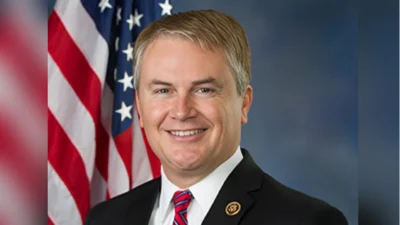Dear Ambassador Kirk:
We are writing to express our appreciation for your efforts to obtain eligibility for American-made autos to Japan’s Environmental Friendly Vehicles (“eco-cars") program, and to encourage your continued vigorous engagement with Japan in order to secure greater access for U.S. auto exports to that country’s market. Your work in recent weeks was a significant first step, but cannot be the last in this Administration’s work to open Japan’s market, which has been essentially closed to the U.S. automotive industry. In light of the President’s commitment to dramatically increase exports, it is critical that USTR press our trading partners to dismantle their market access barriers.
As you are aware, Japan’s Ministry of Economy, Trade and Industry (METI) announced on Jan. 19, 2010, that it was revising it eco-cars program to permit U.S. vehicles imported under the Preferential Handling Procedure (PHP) to be eligible for the eco-cars program when certain requirements are met. Specifically, the Government of Japan committed to accepting U.S. data regarding fuel economy to determine whether imported U.S. vehicles satisfy Japan’s 2010 fuel economy standard. While this is a positive development, particularly in light of the historic barriers to the Japanese auto market, the extent to which this revision achieves real market access gains for U.S. autos turns on Japan’s implementation of the specific details of this program, as well as Japan’s willingness to address its longstanding low import penetration for autos.
In particular, Japan stated that it would determine the eligibility of U.S. imported vehicles on the basis of their “city" fuel economy ratings, as opposed to their “combined" ratings. This “city" rating is, however, more restrictive than the “combined" rating, and provides an incomplete picture of the overall fuel economy of U.S. vehicles. It is important to note that the “combined" rating was used in the U.S. cash-for-clunkers program, and was applied equally to vehicles produced by U.S. and Japanese automakers.
We understand that Japan’s use of the “city" rating will limit the eligibility of, and the practical commercial impact for, U.S. vehicles under the eco-cars program. U.S. vehicles are competitive and should be allowed to compete in the Japanese market on a level-playing field. This is particularly true where the U.S. “city" rating may be more stringent than the corresponding ratings for other vehicles, whether imported or produced in Japan.
Therefore, we request that you continue your engagement with the Government of Japan in order to ensure that imported U.S. vehicles are eligible for the eco-car program not only in theory, but in practice. To this end, we ask that you press the Government of Japan to base its eligibility determinations for the eco-car program on the “combined" ratings for U.S. vehicles imported into Japan under the PHP program.
We applaud your attention to the problems presented by the eco-car program and we stand ready to work with you to address remaining barriers that impede access by our automotive industry to the third largest auto market in the world.
Sincerely,
____________________________ The Honorable Charles B. Rangel The Honorable Sander M. Levin
Chairman Chairman, Subcommittee on Trade







